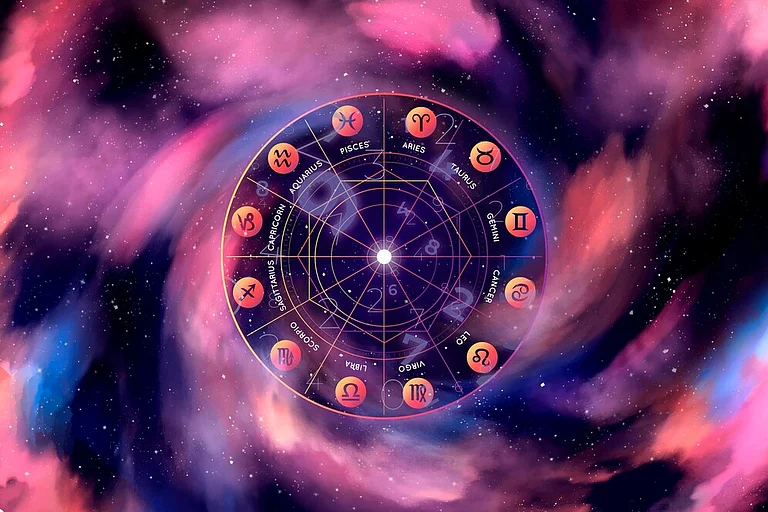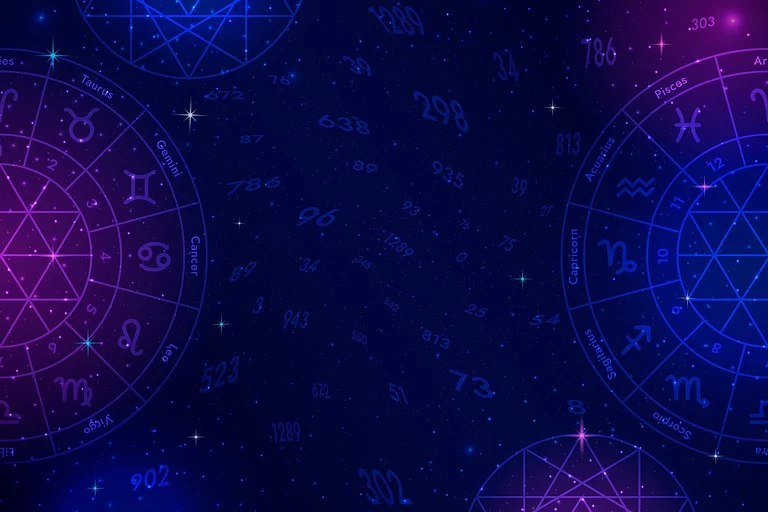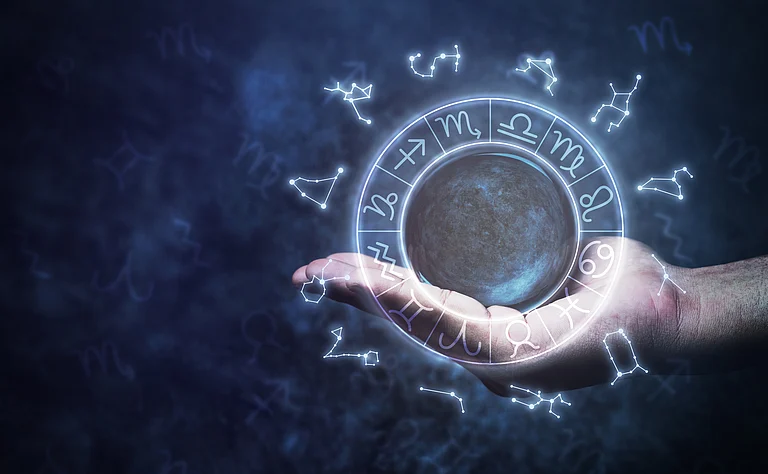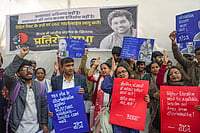
Personal stories—from Dipti, Geeta, and author Ravinder Singh—show how the death of a spouse or loved one leaves an enduring void, disrupting both ordinary routines and emotional balance.
Grief manifests in anxiety, depression, loneliness, guilt, and physical symptoms, often reshaping people’s faith, identity, and coping mechanisms, such as writing or holding on to memories.
As Joan Didion and others describe, mourning a partner doesn’t end; it lingers in songs, objects, and daily moments—transforming grief into both suffering and a way of keeping love alive.
“Grief turns out to be a place none of us know until we reach it.”
―Joan Didion, The Year of Magical Thinking
In this book, author Joan Didion wrote these words after the sudden death of her husband. She wasn’t giving the world a definition of grief. Rather, she was inviting readers to understand how a person felt when he/she loses someone with whom he/she shared not just a room, but our whole life. This phase of life is not just marked by sadness, but by tears, anxiety, panic attacks, depression, loneliness, grief, rage, denial, memories, and profound silence.
While scrolling through Instagram reels, I stumbled upon a clip of an actor named Andrew Garfield. He beautifully expressed the loss of his mother in one line. He said, “I hope this grief stays with me because it’s all of the unexpressed love that I didn’t get to tell her.” That line stayed with me. I often wonder how the death of a loved one affects our mental health.
“I didn’t just lose a partner―I lost my best friend,” she says, breaking down in tears as she describes her relationship with her husband.
“She lost her husband a few months ago and says his memories still haunt her. Sometimes, a song on the radio brings back memories of her late husband. In the book, writer Didion called this a ‘vortex effect’. It means when one small thing pulls you into a flood of memories, no matter how much you try to stay in the present.”
“The moment I knew he was no more, I kept telling myself, ‘This can’t happen to me’. I used to think I was the strongest human being when it came to handling grief or loss, but the death of your partner hits you differently. It makes you lose touch with daily life.”
Dipti describes, “I still remember the day I went to collect his death certificate. The whole way there, I kept mumbling to myself, ‘Why is this happening to me?’ The moment the certificate was in my hands, I broke down.” “Some memories still catch me off guard. Any memory of him brings tears, and I break down at any moment of the day. At night, I used to fall asleep holding his hand. Now, that side of the bed is empty, and he’s gone.” “His clothes still hang in the cupboard. When I touch them, I can still feel his presence. The loneliness, followed by emptiness, has broken me completely.” “Initially, I stopped going out in public because I didn’t want to face the world in his absence. We shared life together for more than 30 years as best friends. My way of coping is to do things he always wanted to do. I carry his memories with me in my heart.”
“Didion, in her book, describes that what she felt when her partner died wasn’t what she felt when her parents died. The death of her parents remained distant, while the death of a partner impacts the dailyness of life.”
Ravinder Singh, a renowned author, describes how the death of his first love changed him for life. “Her father called me at 4:30 AM and said, ‘I’m sorry, she’s no more’.” I remember only saying, “Waheguru, Waheguru.” I waited until I reached home and told my parents; my father broke down, and my mother held me. I stayed calm at first, but when I called my best friend in Pune and told him, only then it was the moment I finally broke down in tears.
“My first girlfriend, or my first love, passed away in 2007. We had met on a matrimonial website back in 2006―there were no dating apps then,” he said. “I met her in Delhi and it was a brief but memorable first meeting. Over the next eight months, our relationship was long-distance. We were talking to each other over calls and texts, no video chats and it was just an old-school love. One of the fondest memories was when I returned from the US and she had decorated my room with flowers and handwritten notes. Once, she lied to her family to meet me again, and it rained so heavily that night that the streets were flooded and I had to drop her off on a rickshaw at 1:30 AM. That night still flashes in my mind. When I found out she had passed away, I was travelling. The next few months were the hardest. I cried myself to sleep every night. I didn’t even know the word ‘depression’ back then, but evenings would haunt me. I started disliking going home, and work was a distraction. I was 26, and nothing prepares you for that kind of loss. I lost faith in God. I was a Sikh, and within months, I went clean-shaven. I stopped going to the Gurudwara. I would never even read a full book, but I began writing mine because I felt like I would burst if I didn’t. Writing became my catharsis. People told me later that this was ‘catharsis’―a word I didn’t even know at the time. I wrote it not to move on, but to remember. In the name of love, some build monuments and I wrote a book.”
“I cried while writing. I had to relive every memory, and while closing my eyes took me back to 2006, opening them reminded me it was 2007 and she was gone. That shift between memory and reality was painful. I used to dream of her and sometimes wondered how she was alive because I knew she had died. Moving on didn’t come suddenly, the process of processing her loss was gradual. When I started looking forward to things again, it helped me. The moment I saw others being moved by our story, I felt her memory was alive. Someone, somewhere is reading that book even now, meeting her through my words. That’s when grief turned into something beautiful. It still overwhelms me sometimes, but I speak carefully now, with sensitivity. I don’t feel stuck anymore. Writing wasn’t just expression, it was survival for me.”
“Her hands were shaking when I asked her about her partner.” “Geeta was only 38 when she lost her husband to a heart attack. The pain of losing her partner is still etched on her face. Her eyes speak the whole story. The trembling hands revealed how she’s still stuck in the memories of her late husband. The memories of her partner highlighted the void that followed after his death.”
“She expressed how partners don’t just share the big things in life, but also the mundane things. It’s the time we spend sharing the ordinary moments that becomes the most meaningful.”
“The loneliness,” she said, “is the worst part that comes with grieving a partner. People think mourning ends after a few weeks or months―but it doesn’t. It comes in parts. It stays with you.”
“I was also raising three children, and there were days when I had no space or time to grieve. At times, it was suffocating to do all the mundane things when your body wasn’t able to handle the weight of emotions.”
Didion beautifully expresses in her book, “I know why we try to keep the dead alive: we try to keep them alive in order to keep them with us. I also know that if we are to live ourselves, there comes a point at which we must relinquish the dead, let them go, keep them dead.”
“Grief and losing a person deeply impact mental health,” says therapist Aman. “When you anticipate someone passing away from a terminal illness, the most troubling feeling is having to witness them scatter away in parts. The grief isn’t acute as it builds up and stays there like white noise.”
“The ailing person tires easily, and while you’re there to help, it kills you to see them lose life bit by bit. You grieve over the facade of positivity they have to put on. You grieve over the unfairness of it. The grieving process begins even before the person has walked into the crutches of death.” “And the grief hides a certain amount of guilt―guilt that I’m in a better place, and why do I deserve to be? Guilt that I am grieving this person before they vanish.” “But when you’ve seen a person at their best, how do you look at them the same way when that best-ness is slowly slipping?”
“The grief makes me want to run away―but I’m here to stay. To let grief wash all over me. The grief colours my existence, but it doesn’t need correction. The grief is here to stay. I move forward, hoping I will grow bigger around it one day.” “This person is more than my grief to me.”
Dipti says, “The other day, I was doing something and a Jagjit Singh ghazal came on the radio―Tumko dekha to yeh khayal aaya, zindagi dhoop tum ghana saaya. Tum chale jaoge to sochege, humne kya khoya, humne kya paaya. That was his song for me. He would sing it and dedicate the lyrics to me and now when I hear it, I feel his presence and absence, both. My best friend is right beside me and yet gone forever. She lost the person who was her whole world.” Ravinder Singh is still overwhelmed by her memories, but he shares how writing helps him keep those memories alive forever. The story of Geeta makes us believe in how grieving never ends and the pain of losing a partner is always there.
The stories of people say the same thing: death is inevitable, but losing your other half turns your entire world upside down. Didion wrote in her book that she didn’t believe in the ‘resurrection of the body’, yet she confessed that, deep down, she believed her partner would come back, if only the right circumstances were created. These people too believe that somewhere down the line, they will meet their partners again, and until then, they’re keeping them alive in their memories.



























